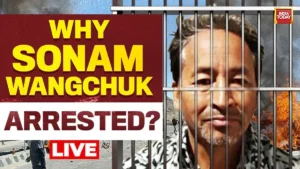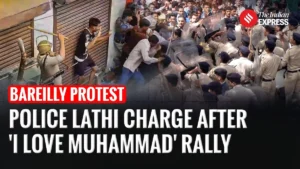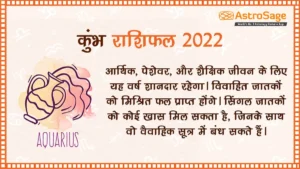Decoding MHA | More Than Just Headlines – What You Need to Know
The Ministry of Home Affairs (MHA) – it sounds important, right? But let’s be honest, most of the time it just blends into the background noise of news alerts and government announcements. But here’s the thing: MHA decisions impact everything from your personal safety to the infrastructure projects happening in your city. So, why is it that we only pay attention when there’s a crisis? Let’s change that. I want to break down what the MHA actually does, why it matters to you, and how to navigate the often-opaque world of Indian governance. Think of this as your friendly neighborhood guide to understanding a crucial arm of our government.
Understanding the MHA’s Vast Reach

The MHA isn’t just about police forces and national security, though those are certainly big parts of it. It’s actually a massive umbrella organization with a finger in almost every pie related to internal affairs. Think about it: disaster management, census operations, border control, even the administration of Union Territories – all fall under its purview. What fascinates me is how such a diverse set of responsibilities gets managed under one roof. According to the official MHA website (mha.gov.in), one of its key goals is to maintain peace and harmony in the country. But what does that even mean in practice?
Here’s a concrete example: say there’s a major flood in Assam. The MHA isn’t just sending thoughts and prayers. They’re coordinating the National Disaster Response Force (NDRF), allocating funds for relief, and working with state governments to manage the crisis. And that’s just one example of mha responsibilities .
Why Should You Care About MHA Policies?
Okay, I get it. Government stuff can seem distant and irrelevant to your daily life. But the MHA’s policies directly affect you in ways you might not even realize. Take, for instance, the Aadhaar card. Remember the initial chaos and confusion surrounding its implementation? The MHA plays a crucial role in its administration and usage guidelines, impacting everything from opening a bank account to filing your taxes. The one thing you absolutely must double-check is that your Aadhaar information is up-to-date, avoiding potential bureaucratic headaches down the line.
And it’s not just about national-level policies. The MHA also oversees law and order in Delhi, which directly impacts the safety and security of the capital’s residents. So, the next time you’re stuck in traffic because of a VIP movement, remember that the MHA is involved in those security protocols. Speaking of local impact, don’t forget to check out this review .
Navigating the MHA Website | A User’s Guide
Let’s be honest, government websites aren’t exactly known for their user-friendliness. The MHA’s website (mha.gov.in) can feel like a maze at times. But if you know what you’re looking for, it can be a treasure trove of information. I initially thought this was straightforward, but then I realized how much jargon and bureaucratic language is used. A common mistake I see people make is trying to understand the circulars without reading the actual notifications.
Here’s a quick tip: use the search function! Seriously, it’s your best friend. If you’re looking for information on visa regulations, type in “visa” and see what comes up. You can also find contact information for various departments if you need to reach out directly. Remember to be specific with your search queries to avoid wading through irrelevant documents. Want to know more about internal security ? It’s all there.
MHA’s Role in Shaping India’s Future
The MHA’s influence extends far beyond day-to-day administration. It plays a critical role in shaping India’s long-term future, particularly in areas like border management and cybersecurity. As India’s geopolitical landscape evolves, the MHA’s strategic decisions will have a profound impact on our national security and economic prosperity. According to the latest circular, the mha responsibilities now includes better cybersecurity infrastructure.
Consider the challenges of managing India’s vast and porous borders. The MHA is responsible for coordinating various security agencies, implementing border infrastructure projects, and combating cross-border crime. These efforts are crucial for maintaining India’s territorial integrity and preventing illegal immigration. What’s more, with the rise of cyber warfare, the MHA is also at the forefront of protecting India’s critical infrastructure from cyberattacks. Don’t forget to check out this article on the semiconductor industry.
The MHA is more than just a government department; it’s a vital organ of the Indian state, responsible for maintaining internal security, managing disasters, and shaping India’s future. By understanding its role and functions, we can become more informed and engaged citizens.
FAQ About the Ministry of Home Affairs
What exactly does the MHA do?
The MHA handles internal security, border management, disaster management, and administration of Union Territories, among other things.
Where can I find official information from the MHA?
The official website is mha.gov.in. Be sure to double-check any information you find on third-party sites with the official source.
How can I contact the MHA?
The MHA website has contact information for various departments. Use the search function to find the relevant contact details.
What is the NDRF, and how is it related to the MHA?
The National Disaster Response Force (NDRF) is a specialized force under the MHA that responds to natural and man-made disasters.
Does the MHA deal with cybersecurity?
Yes, the MHA plays a crucial role in protecting India’s critical infrastructure from cyberattacks.
What are the key responsibilities of home ministry ?
Its responsibilities include maintaining internal security, border management, disaster response, and policy formulation related to these areas.
So, the next time you see the acronym MHA, remember that it represents a vast and complex organization with a significant impact on your life. It’s not just about headlines; it’s about the nuts and bolts of how India is governed. And understanding that is power.













